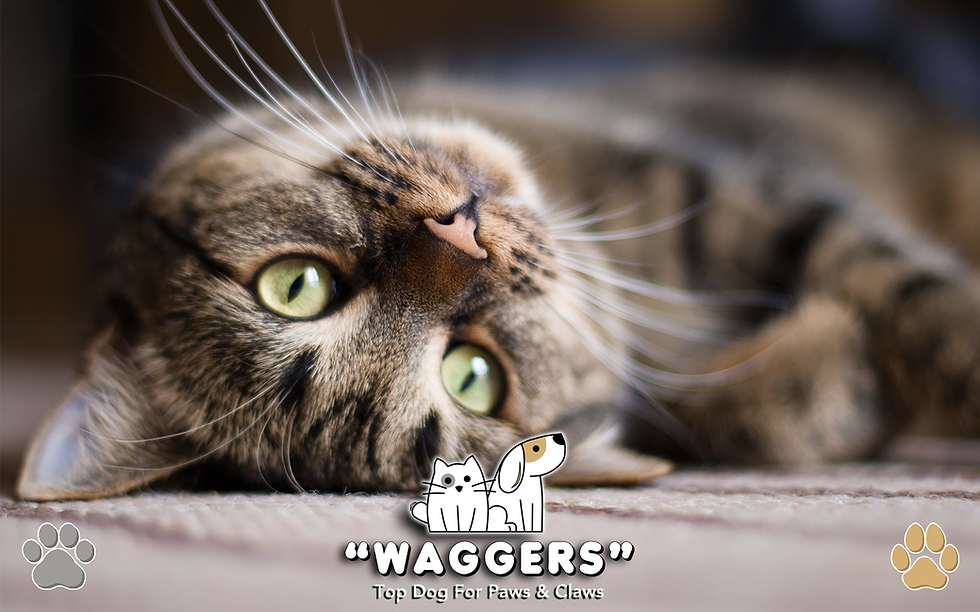Those who share their living space with feline companions often ponder the mysterious allure cats find in gazing at passing traffic or observing a fish gracefully swimming in a bowl. As we grapple with unraveling the intricacies of the human mind, perhaps there will come a time when we can truly comprehend the unique perspective through which cats perceive and process the world.
Until that day arrives, our insights into feline cognition must be gleaned from an examination of their communication patterns and behaviors.

HOW DO CATS PERCEIVE THE WORLD?
Yes, cats possess cognitive abilities housed in their brains. However, their emotional framework diverges significantly from ours, notably in the realm of loyalty. While we commonly associate loyalty with dogs, it's a misconception. Ever wondered why cats seem averse to travel or car rides? It stems from their loyalty to their familiar surroundings and people, as they find comfort, warmth, and security in proximity to them. Unfortunately, this loyalty can be misconstrued as a lack of attachment.
Humans often project their tendency to hold grudges onto cats, interpreting their resistance or displeasure as 'aggression.' In reality, feline behavior reflects a desire for autonomy in decisions concerning their well-being. While they may express frustration in situations where they lack control, cats don't harbor grudges or devise schemes for retaliation when subjected to inconveniences like a cold water bath or morning neglect.
Unlike dogs, cats exhibit flexibility in their hierarchical structure, sharing resources in their environment through turn-taking. However, scarcity may incite jealousy among them. In a multi-cat household, managing resources becomes crucial to avoid conflicts. Recognizing your time as a valuable resource in their perspective is key to understanding their interactions.
Delving into the emotional spectrum, cats experience happiness when calm, mentally engaged, well-fed, played with, groomed, and given attention. Conversely, signs of sadness, akin to anxiety or depression in human terms, emerge when they feel bored, stressed, hungry, dirty, or neglected. Understanding these nuances helps bridge the communication gap between humans and their feline companions.
WHAT OCCUPIES A CAT'S THOUGHTS?
Undoubtedly intelligent, cats exhibit cognitive abilities that share similarities with humans. One intriguing discovery by scientists is the phenomenon of 'object permanence.' Much like humans intuitively understanding that a pot left boiling on the stove remains there even when out of sight, cats too grasp this concept. Unlike dogs, cats demonstrate an awareness of object permanence by returning to a hidden food stash in the closet. Their ability to retain an object's 'place' in memory after it disappears from view is notable.
The study of a cat's perception encompasses their utilization of senses—sight, smell, hearing, touch, and taste—to detect stimuli and understand the relationships between objects in their environment. Scientists explore whether cats comprehend the connections between objects, such as pulling on a string regardless of its association with food. However, this inquiry faces scrutiny due to unreliable variables.
Do cats think about food?
Even if well-fed, the idea of delectable chicken or enticing soup readily enters their minds, triggered by cues like you entering the kitchen or the sound of a can opening. Their persistent 'meows' in various tones accompany these moments, as survival instincts keep food on their mental agenda, reminiscent of their wild instincts to secure the next meal promptly after eating.
Contrary to expectations, cats boast powerful long-term memories attributed to their heightened senses. Enhanced olfactory, visual, auditory, tactile, and gustatory perceptions enable them to vividly recall past experiences even after several years. When your cat appears to be lost in contemplation, it might be reliving memories akin to daydreaming, possibly triggered by familiar sounds or stimuli.
Do cats contemplate humans?
There's a strong likelihood that your cat thinks about you. Behavioral cues, such as greeting you at the door with affectionate rubs, indicate your presence in their thoughts. Some cat behaviorists propose that domestic cats inhabit a state of 'perpetual kittenhood,' viewing their owners as parental figures. This perspective aligns with how kittens seek their mothers for guidance and attention. Thus, your cat's interactions, whether calling you to witness an intriguing discovery or seeking support and companionship, reflect a genuine connection.
While the intricacies of feline thoughts remain a fascinating realm yet to be fully explored, rest assured that your cat's contemplative stares likely hold purpose and meaning.

Comentários